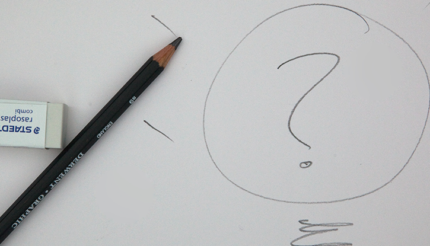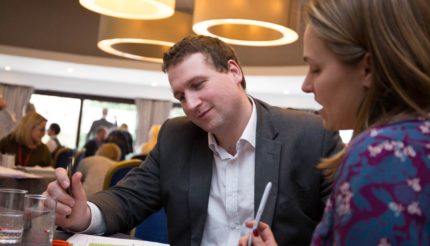Five tips on how to find your VOICE with inspirational speaker and facilitator Heather Wright
What defines you? There is no right or wrong answer.
You may think of it as being who you inherently are, or the roles you choose to take on in your career and relationships. There are a few key points to consider when thinking about the things that define you and how they are relevant to your life: your Values, Optimism, Influence, Commitment and Energy. In other words, your VOICE.
We were joined LIVE on the Big Friday Finish by inspirational speaker and facilitator Heather Wright! Heather delivers speeches and workshops to public services and large multinational companies in the UK, Europe, Central America and Australia. She specialises in the psychology of influence and how to convert it to usable, teachable material to change the lives of others. Here is what she had to say about finding your VOICE:
Values
Most people don’t know how to articulate their values. To complicate things further, no two people will interpret the word “values” in exactly the same way. The first step to pinpoint your values is to choose your personal goals. If you already have some in place, then examine them. These are a reflection of what sort of person you are and what sort of person you wish to become.
Another way to establish your values is to look at the people who inspire you the most. This can tell you a lot about what matters most to you. Why do you follow these people? What is it about them that you wish to see in yourself? Chances are, they have achieved things in areas that are important to you. Or they have character traits that you admire and try to emulate. Either way, try to take a healthy approach to comparison. Aim to learn from the people you admire, but don’t aim to be just like them, or better than them – the only person you should be competing with is your past self.
Optimism
Believe it or not, optimism isn’t just about happiness and positivity. First and foremost, it is about resilience and looking ahead. You cannot avoid sadness, worry or anger, but you can avoid letting these feelings consume you. One of the most important lessons Heather learned is to practice curiosity – when you are curious, you cannot feel angry, stressed or sad. This is an important technique for when you look at your situation or goals in an objective way, and it is helpful for developing patience and empathy towards other people as well.
Practicing optimism starts with developing good physical, mental and emotional habits. These can include regular gentle exercise, doing relaxing activities that settle the mind and limiting exposure to news, emails and social media. If you can develop healthy routines, you will re-programme your brain towards new ways of thinking such as resilience, self esteem and emotional intelligence. Many people instinctively resist change and often end up stuck
in the same habits, routines and thought patterns because they feel familiar and safe, even if they are not healthy. Instead of falling into this cycle, keep looking for ways to improve – in your work, your relationships and your self-care. The steps you take may seem small but they will make a big difference.
Influence
How do you affect the people around you? There are several skills required to be a good listener. You don’t need to have a naturally extroverted personality; you simply need to know how to talk and how to listen. Don’t bombard people; make sure when you’re talking you are engaging with them. This means dropping your ego and putting them at the centre.
This is where listening skills come in. Instead of constantly trying to think of a response, listen with a quiet mind and think only about what the other person is saying. Try to understand where they are coming from even if you don’t agree with them. If you need to voice a different opinion, do so respectfully from a place of compassion. As Heather puts it, nobody cares if you’re right if you’re being a pratt about it!
Commitment
When you are committed to something, you have a sense of purpose. Your commitments are what get you out of bed in the morning – mediocrity simply isn’t enough. Once you have developed habits that are good for you and your goals, you will find it easier to stick to them as time goes on. Work on the little things and the big things will work on themselves.
Note that there is a difference between commitment and obligation. If you feel obligated to keep doing something, you are only doing it because you feel like you have to. A commitment is something you do because the results matter to you even when the process is hard. You will not get everything right all the time, but you will keep improving if you are wholehearted in what you do, so strive for progression over perfection.
Energy
To be committed to success, you need energy, otherwise you will struggle to make decisions and take action. Each person has a different capacity for energy and will have different things that deplete and replenish their energy levels. In all areas of life – at work, at home and in your relationships – keep an eye on what depletes and replenishes your energy.
If you start to burn out, it may be time to re-evaluate your goals and lifestyle and make changes that build your energy levels back up. Try to prioritise so you can work on the most important tasks regularly and make time for less important tasks on days or weeks when you can easily manage them. Remember that looking after your health and relationships are as important as your career goals, so do not neglect these in favour of overworking.
To find out more about how you can work on self-improvement in all areas of your life, listen to the Big Friday Finish on YouTube.






At the beginning, I was still puzzled. Since I read your article, I have been very impressed. It has provided a lot of innovative ideas for my thesis related to gate.io. Thank u. But I still have some doubts, can you help me? Thanks.
I am a student of BAK College. The recent paper competition gave me a lot of headaches, and I checked a lot of information. Finally, after reading your article, it suddenly dawned on me that I can still have such an idea. grateful. But I still have some questions, hope you can help me.
Thank you for your sharing. I am worried that I lack creative ideas. It is your article that makes me full of hope. Thank you. But, I have a question, can you help me? https://accounts.binance.com/pt-PT/register?ref=DB40ITMB
Thank you for your sharing. I am worried that I lack creative ideas. It is your article that makes me full of hope. Thank you. But, I have a question, can you help me?